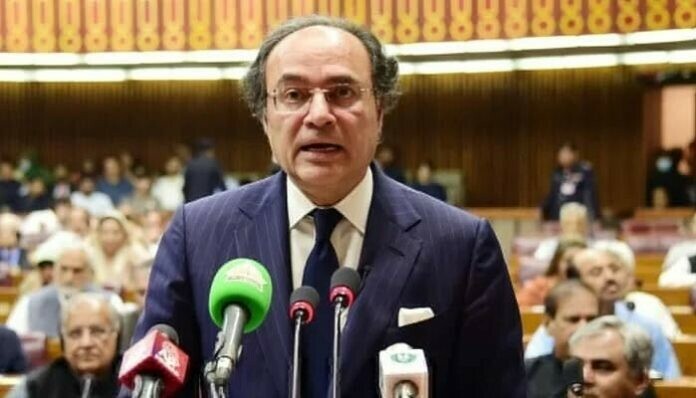Finance Minister Muhammad Aurangzeb on Monday clarified that the expanded enforcement powers granted to the Federal Board of Revenue (FBR) under recent reforms are intended solely to tackle sales tax fraud, and not income tax issues as some critics have claimed.
“This whole issue is a sales tax fraud issue,” Aurangzeb said during a press conference in Karachi. “It has no relation to income tax.”
The finance minister defended the amendments, which give the FBR authority to block high-value transactions by non-filers—including vehicle and property purchases, investments in mutual funds and securities, and the opening of premium bank accounts. The law also empowers the tax authority to seal unregistered business premises, confiscate goods, and recover taxes—even from public sector entities.
Aurangzeb explained that these powers already existed under the original legislation, but the government has now introduced additional safeguards. “Inland Revenue Service officers already had the power to arrest. What we’ve done is build in more protections,” he said.
He noted that the law underwent rigorous scrutiny, with detailed clause-by-clause discussions in the National Assembly, the Senate Finance Committee, and standing committees, and included input from the Pakistan Bar Council’s vice chairman.
“This is not something Parliament has approved without thinking it through,” he stressed. “A lot of thought has gone into it.”
The finance minister elaborated that of the 10–12 key sections in question, at least six relate to sales tax fraud—offences he described as more serious than others. He also stated that the new powers would only be exercised in cases involving over Rs50 million in fraud, and only at the commissioner level, with authorisation required from a three-member FBR board.
Shifting to the broader economic picture, Aurangzeb called on Pakistan’s banking sector to play a larger role in the government’s economic revival efforts—particularly in the privatisation of state-owned enterprises and the rehabilitation of financially distressed firms.
“There are 24 state-owned enterprises currently with the Privatisation Commission,” he said. “Banks can play a very important role in this, and they should.”
He acknowledged the challenges faced by various industries—ranging from inflation and high interest rates to volatility in global commodity prices—and urged banks to partner with sponsors to bring struggling units back to life. “This is a very big pillar of Haroon Akhtar’s industrial policy, where banks can play a very major role,” Aurangzeb said.
He also touched on macroeconomic challenges and investor sentiment. “It was a very big issue that [foreign investors’] dividends were stuck here, their profits were unable to be repatriated, there was difficulty in opening their letters of credit,” he said. He credited “substantial improvement” over the last 12 to 18 months and emphasized investor confidence as “basic hygiene” for attracting further capital.
“If existing investors are not satisfied, then bringing further investment in the future is very difficult,” he noted. “So I think we’ve come a long way from that perspective.”
Aurangzeb also spoke about ongoing efforts to modernise and digitise the FBR. He said he had invited Faysal Bank President and CEO Yousuf Hussain, as well as Communications Minister Abdul Aleem, to Islamabad to observe the ongoing transformation at the tax body.
“It is very important to re-establish the credibility and trust of our tax authority in this country,” he said.
One of the key reforms involves simplification of tax filing processes, beginning with salaried individuals. The finance minister urged feedback on the newly launched simplified tax return form, now live on the FBR website.
“The first form that used to be filled out had about 800 rows and complicated codes,” he said. “Now there are eight screens in total.”
He noted that salaried filers are just the starting point. “We will take this to small traders, and then we will take it to SMEs. Whatever we can facilitate in simplifying the process, we will.”
Aurangzeb also disclosed that as of two days ago, Rs75 billion in sales tax refunds had been disbursed within the month. He reaffirmed that the government is holding regular meetings to ensure sustained progress toward long-term economic stability.
“What finance minister does not want a big increase in growth?” he asked, while cautioning against short-term “sugar rush” strategies that have previously led to boom-and-bust cycles.
“We must avoid repeating those mistakes and instead build sustainability,” he said.
On structural reforms, Aurangzeb reiterated his belief in deregulation where feasible. “My personal opinion is that whatever things we can deregulate, we should,” he said, citing rice and maize as successful examples.
“Wherever the government gets a credit, that is where there are issues,” he concluded. “So over a period of time, I think we should leave it to the private sector and demand and supply, and I think that to me is a structural solution.”




